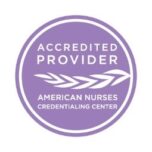
Trauma Nursing Core Course (TNCC)
Trauma Nursing Core Course (TNCC)
Disclaimer
Core Content Areas:
- Trauma Nursing & the TNCC Process
- Biomechanics, Kinematics & Mechanisms of Injury
- Spinal Cord & Vertebral Column Trauma
- Airway & Ventilation Management
- Initial Assessment & Shock
- Musculoskeletal, Burn & Surface Trauma
- Abdominal, Pelvic, Thoracic & Neck Trauma
- Brain, Cranial, and Maxillofacial Injuries
- Ocular Trauma
- Pain Management
- Transition of Care & Post-Resuscitation Management
- Disaster Management & Teamwork
- Psychosocial Aspects of Trauma Care
Course Objectives:
Participants will learn to:
- Systematically assess trauma patients
- Identify life-threatening injuries
- Prioritize interventions based on patient condition
- Collaborate effectively in trauma teams
- Apply trauma care principles to special populations
Features & Course Structure:
- Evidence-based TNCC Provider Manual (updated edition)
- Virtual learning modules with avatar-based simulation
- Scenario-based interactive teaching strategies
- Electronic, open-book exam (reduces test anxiety)
- Practical trauma assessment skills sessions
Special Populations Covered:
- Pediatric Trauma
- Geriatric Trauma
- Pregnant Trauma Patients
- Bariatric Patients
- Victims of Interpersonal Violence

